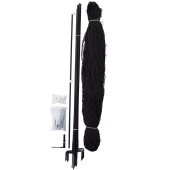
























Roman Campbell wrote:Guess I'll go with sheep. Would 1 male and 2 females be ideal?




 1
1
































Homesteading in Central Virginia
Our Website




Dana Jones wrote:I went with sheep because goats are escape artists. Sheep stay in the fence.
 1
1




"Permaculture is a philosophy of working with, rather than against nature; of protracted & thoughtful observation rather than protracted & thoughtless labour; & of looking at plants & animals in all their functions, rather than treating any area as a single-product system."-Bill Mollison




 1
1








Not growing or raising anything at the moment, but I'm here doing research for the future.








Not growing or raising anything at the moment, but I'm here doing research for the future.





|
After three months of being pooless the hair and skin on this tiny ad is glorious!
Learn Permaculture through a little hard work
https://wheaton-labs.com/bootcamp
|




